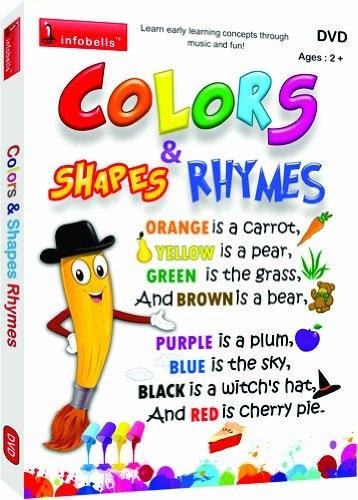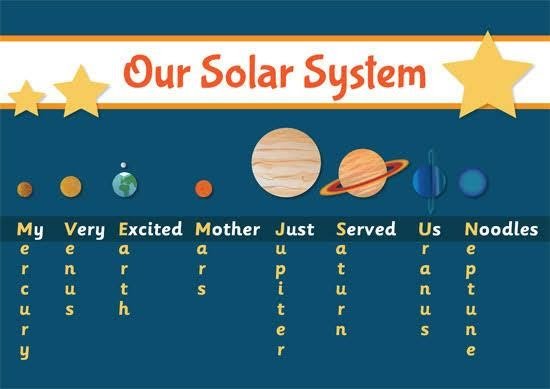It can be extremely easy to forget something as you get older. Whether it be, where you kept your keys or what you have to do tomorrow. It is natural to be forgetful with age. But you know it is not natural for children to have a dull memory. Children always have a sharp memory but the problem of lacking focus is always present. This problem has especially manifested due to the rise of digital devices. So, read this blog to learn some of the simple ways to improve your child’s memory and concentration.
It is hard for children to focus when they are constantly thinking about their games and using social media. They love using their devices and are too distracted to be retaining memories. This is a modern problem that parents these days have to face.
Building a sharp concentration and helping children learn to retain important things in life can prove to be hard. It is especially hard when you have to teach your children and they cannot focus in class. And retaining short-term and long-term memory for your child is important for their entire life.

It is always a daunting task to help your child with their schoolwork or studying. Because they lack focus and concentration while doing something. Every parent can relate to telling their child to quit fidgeting with something else and focus on their assignment.
But how can you help boost your child’s memory and concentration when the world around them is so distracting. It is important to remember to stay involved as parents in your child’s learning process. When you are involved with what they are learning, you will be able to better access their needs.
This will also help you to take control of their habits and improve your child’s concentration. Involving yourself while your child is learning, will help you bond with your child as well. So while improving your child’s memory and concentration may be hard. It is important to remain consistent with your efforts to keep them interested.
So what can you do to boost your child’s memory? How can you improve your child’s memory and concentration? Well, we will guide you through this path of confusion!
Here Are 11 Ways To Improve Your Child’s Memory And Concentration
We have suggested 11 ways to improve your child’s memory and concentration. You might find that some combinations are effective while others may not be as effective.
We advise you to pick the methods according to the personality and enthusiasm of your child to learn.
1. Make Learning Fun
The reason why it seems that children lack focus is that they are different from us adults. Children unlike most adults cannot keep their attention on the same subject for a long period. They have a shorter span of attention.

When things do not grab their attention or stop being fun, children tend to lose interest in them. They simply move on to something else. But the problem is that learning requires people to pay attention and the ability to focus.
Hence, if you are teaching something to your kids, make sure that you are having fun while learning.
You can make learning fun by choosing various methods. But the best method to select is according to their interests.
Let’s suppose your child loves learning about dinosaurs. Make learning fun by buying them best children’s books about dinosaurs or any other. Watch movies and visit museums that have information on dinosaurs.
And start implementing this technique also for other subjects that they might not be keen about. If your kid hates studying science, tell them interesting facts surrounding the subject they are studying.
This method works great for kids every time!
2. Use Visual Aids
Another method that proves to be the most useful is using a visual aid to boost the memory and concentration of your child. We all know how visual aids can be effective to help boost your child’s memory. But it is to remember that using too much of visual aid and computers may lead to sickness due to involvement in cyber world.
So we would recommend you to use visual aids for topics that mainly are hard to figure out for your child. There are many resources available online such as photos, videos and even games that help in learning different subjects.
Children especially hate learning topics that they find complicated. They lose their interest and hate paying attention to these subjects. But using visual aids helps your child stay focused on the subject matter as it is more attention-grabbing than textbooks. Furthermore, visual aids also assist in boosting the memory of your child.
We all know that we remember most movies better than what we studied at college or school. The same applies to your child as well. So if you find your child constantly forgetting something that they have tests in or need to learn, look for resources online for help.
There are countless videos related to harder subjects that are available online on YouTube or other platforms. Some of the examples of these platforms are Khan Academy, Crash Course, and DuoLingo.
3. Use Personal Examples
Children are always keen to learn. If you create the right environment, they love to read and learn new things. But they might have troubles retaining the memory of what they have studied.
So in cases such as these, you have to involve yourself and help them boost their memories by using examples that they can relate to. You have to give examples that they can find relevant and interesting.
They will have a hard time remembering something abstract. So when helping them study, give examples that they can relate to their lives.
For example, if they are learning basic addition or subtraction, help them remember the basics by giving examples of their favourite fruits and candies. This will help them connect the subject material to something that they love.
You can also help them boost their memory by encouraging them to create examples of the given topic. When they make their examples, they remember the topic and examples themselves better. Connecting the topic to their examples is a great way to boost your child’s memory.
4. Create rhymes and songs

We can all admit that we remember the word-for-word lyrics for our favourite song. Sometimes we even remember the lyrics of songs that we do not care for. They are just imprinted in our memory because they are more catchy than most learning materials.
So why not use this technique to improve your child’s long-term memory. This will be one of the most fun ways to help your child learn and retain the memory of something critical.
So help your child make rhymes or songs out of the subject matter. Our brain is wired to remember songs or rhymes for an extended amount of time aiding the memory.
What we suggest you do is, make songs of the topics. Let us suppose your child has to learn the name of the colours or shapes. So make rhymes out of these subjects that are fun for them to learn.
5. Ask Questions
Another trick for building long-term memory is asking questions to your child. Ask them what they learned at school and ask questions about the subject matter. You can also do this while their tests are approaching. Simply ask questions like that might appear in the exams.
Another way of making this fun is by asking the questions as if you are on a game show. So pretend that you are the host of “Who wants to be a Millionaire?” and your child is the contestant. It will be fun pretending to be playing the game and will also help your child concentrate better on their studies. It will also help your child learn better for their test.
This technique will also work great if your child makes a mistake. They will remember the mistakes they made while playing the game and will remember not to make the same mistakes during their test. Overall, it will be a fun activity for your child and a good way to spend time with them.
6. Break Information Into Chunks
We all might have heard about mnemonics. We used this technique when we were kids to remember the name of the planets in the correct order or when we learned the “PEMDAS” rule in mathematics. They were also extremely popular, helpful for learning formulas for algebra and trigonometry.
So help your child learn and make mnemonics that you are familiar with. You can also learn mnemonics that are available on the internet if you need some help.

Here are some examples of popular mnemonics that are currently used in schools:
- Parentheses Exponent Multiplication Division Addition Subtraction (PEMDAS)- mnemonic- Please Excuse My Dear Aunt Sally
- Mercury Venus Earth Mars Jupiter Saturn Uranus Neptune (MVEMJSUN)- My Very Educated Mother Just Served Us Nachos.
7. Use Positive Reinforcements
We all love being appreciated. It is one of the most human traits we have. When we are appreciated for something we did, we love doing the same thing again just to feel appreciated again. Similarly, when we are appreciated for what we did, we retain the memory of what we did for the long term. This is the basis of how our brain works.
So you can use this information and apply it to your kids. If you show them an appreciation for learning something new, it will encourage them to keep learning something new. You can do the same to keep them concentrated on their assignments or other school work.
Do not compare them with other kids. Comparison of your kids with others have an adverse effect on them. Occasionally, provide them with rewards for remembering something important or doing well on their tests.
8. Practice Makes Perfect
This is something that you might have heard a lot of. That practising the same thing makes you perfect at it. But what it also does is, it helps you remember what you had practised several times. So why not use this technique to help your child as well. Make them practice something that they are bad at several times. Whether it be the mathematics equation or just a nursery rhyme.
You can also practice the same thing with them. Encourage them by staying at their side and providing reinforcements for their efforts. You should praise their effort to go in again at something they are bad at. This will help boost their memory as well as concentration.
9. Nutrition And Sleep For Good Memory
Good nutrition is also an absolute requirement of having a good memory. There have been studies about different superfoods that help children in retaining memories. Some of these foods are recommended to parents even by experts in this field.
But we recommend always including green food in your child’s diet. It helps in their development as well as expands their memory center of the child’s brain. With diet it is important for kids to have a good sleep pattern at night.
There was interesting research in the University of Ulster that found that eating toast with baked beans in the morning helps increase cognition. They also found that eating greens and fruits provide the body with antioxidants which helps in boosting a child’s brain-power.
10. Play Memory Games
Memory is a skill that expands like a muscle. It also shrinks when it is not challenged. So we need opportunities where we are challenged to grow our child’s brain-power. To ensure the expansion of your child’s memory, always keep challenging them. Provide them with opportunities to grow and learn different skills.
This can also follow tricks involving memory games where you can teach your child certain things and ask them to write them down after certain minutes. It can also be done through the use of flashcards. Use games that help in recalling the recent information that they might have learned. It is especially best for younger ones who need a boost in their memory.
11. Make Them Teach You
It is always important for parents to stay involved when their child is learning something new. This will help them better retain the memory of the subject matter just because of your involvement. But another thing this helps you with is staying up to date with what they are studying. So while they might have studied some important topics at school, make them teach the very things they learned at school.
Tell your child to teach you the very basics of what they have learned. It will help you evaluate whether they have the right understanding of the subject matter or not. You can also correct them if they tell you the wrong information. Kids require enough motivation for learning.
This method will help to improve your child’s memory and concentration of what they learned at school. While teaching you, your child will also develop their presentation and interpersonal skills, which are crucial when they become adults.
Conclusion
So these are the 11 ways that you can use to improve your child’s memory and concentration. Have you tried any of these above-mentioned ways? How was the experience? I would love to know about it. So, let us know in the comments down below.















